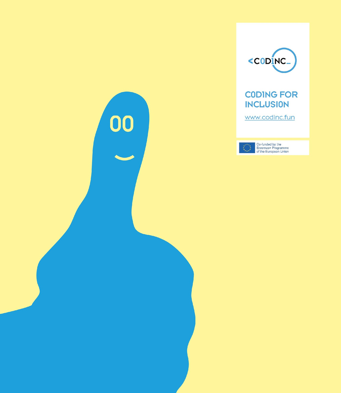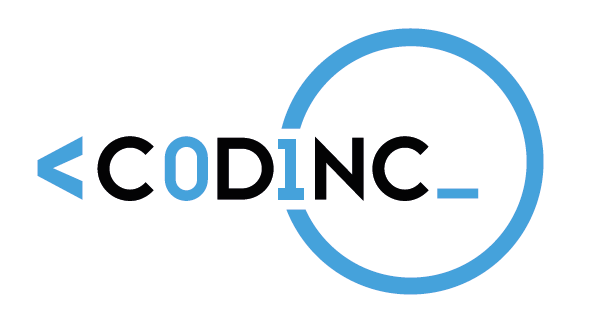Coding for Inclusion (CODINC) is an Erasmus plus Key Action three project in the field of social inclusion. The project scales up a best practice called Capital Digital created by the Brussels-based project partner in non-formal educational sectors. CODINC takes this best practice of Capital Digital and with that developed a formal methodology to bring it into schools. The idea is developing cooperation between formal and non-formal education to develop inclusive practices to promoted coding and computational thinking in schools. The project has run for a two years project and launched in January 2018, it is a two-year project led by ALL DIGITAL with six partner organisations from Belgium, Spain, Cyprus, Germany and Italy, launched in February 2018.
The CODINC methodology is exemplary on how it engages with a peer-learning methodology wherein young students teach their younger peer how to code. The peer-learning methodology is structured to position the young students as being the teachers for their younger peers. This role helps them gain confidence to transfer knowledge and also positions them in a role of responsibility, one where they gain their first working experience. The CODINC experience promotes cohesion and inclusion at the classroom level, and coding is used as the vehicle to deliver this experience so as to motivates students from disadvantaged areas towards become digital creators and not just digital consumers, towards secondary education, STEAM and education careers.
The CODINC experimentation has involved 222 secondary school students trained in coding and learning pedagogies in 15-hour workshops in and outside school hours. The secondary students then went on to teach 481 primary school kid sin peer-to-peer workshops with students in 8 schools and 20 teacher involved in 7 cities in 5 countries.
The results of the CODINC experiment have proven significant change in student-teacher relations, social cohesion and inclusion at the classroom level, soft skills development.
Here you can find the CODINC Experimentation reports from
- Ghent, Belgium
- Brussels, Belgium
- Naples, Italy
- Barcelona, Spain
- Nicosia, Cyprus
- The European Experimentation report






